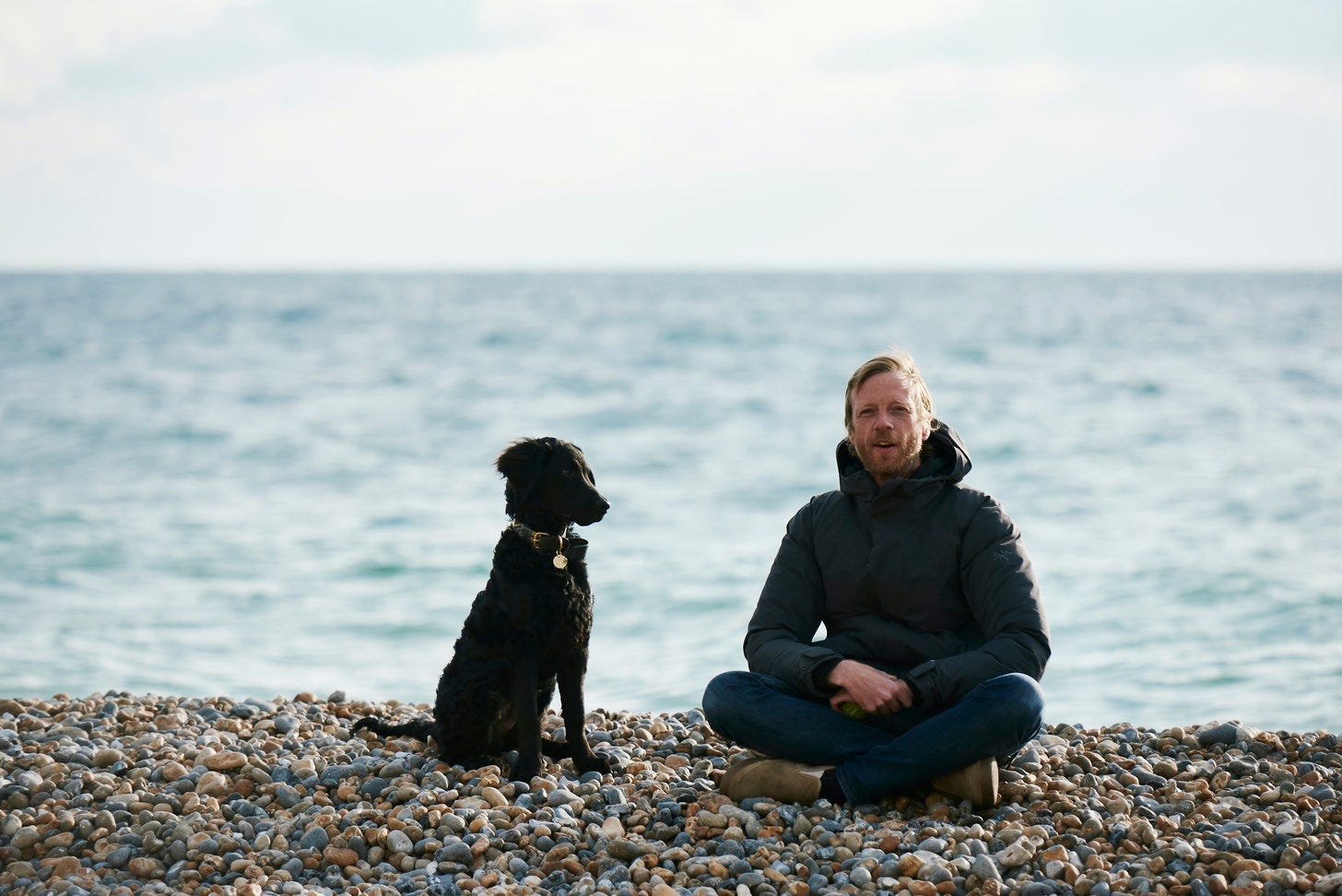1. Your business model must constantly evolve.
As LP Hartley put it in one of the most famous openers in literature:
“The past is a foreign country: they do things differently there”.
To prove the point, here’s a short list of things that didn’t exist when we founded All Conditions Media back in 2005: Twitter. Instagram. WhatsApp. iPhones. Uber. Airbnb. ‘Influencers’. Inexplicably using the word ‘piece’ as a synonym for ‘part’. Perfectly ordinary pieces of advice being referred to as ‘life hacks’ (yes, I know I sound very middle-aged). And so on.
It’s also why any business has to constantly evolve.
Our own history bears this out. ACM began life in 2005 as a ‘freelance writing agency’ providing stories and copy for brands, newspapers and magazines around the world. These days you’d probably call it a ‘content marketing’ agency, although that term didn’t exist back then either.
As the world changed, so did our approach and the way we talked about it. Sure, we had our fair share of false starts and followed plenty of blind alleys. But this forward movement and experimentation has been essential.
Without it, your business will struggle for longevity.
2. Have the difficult conversations early.
In any relationship, difficult conversations are inevitable. And absolutely everybody puts them off for as long as possible.
This is never a good idea. And it’s a particularly bad idea when it comes to agency/client relationships.
Why? Because after a while you realise that 99% of client/agency difficulties are caused by a lack of clarity around expectations on both sides, the seeds of which are usually planted at the beginning of the relationship when everybody is focussing on how great things are, and how you’re going to change the world together.
But difficult conversations will happen at some point. And if you wait until the inevitable dry period, that gap of understanding you inadvertently propagated will have widened dramatically. Leave it too long and it may well be insurmountable, no matter how well things were going during those early years.
The solution? Have those tricky conversations during the honeymoon period when trust levels are at their highest, so clients know exactly what to expect when difficulties do arise. Even so...

3. You will lose clients. You can also choose not to work with clients.
As ridiculous as it sounds, I only grasped the essential truth about having difficult conversations early very recently, when I was trying to work out why a couple of promising early client relationships had foundered.
Losing clients is a fact of agency life. When it happens, your ego and bank balance take the initial hit.
But when the dust settles, that lost client is an opportunity to learn, and improve the way you do things.
Clients walk for plenty of different reasons. A new marketing team comes in and wants to clean house. A global pandemic hits, and the brand has to cut their budgets. That gap between expectations I outlined above becomes too wide to bridge.
In my experience, by far the most common reason for deteriorating relations is that the client never really understood why they wanted to use an agency in the first place (beyond ‘We should hire an agency’), and thus had no clear internal method of judging the success of their campaign.
This is especially an issue when you’re dealing with a client who is inexperienced with agencies, and gets panicky when they encounter the first bump in the road. By the time this becomes apparent to both parties, it can be too late to resolve.
That’s why, today, a huge part of our early interactions with clients is trying to understand if they have a clear idea of what they want and why they have decided to work with an agency. If it becomes apparent they don’t know, it’s time for awkward conversation number one as we try and help them work out what that goal is together.
If, despite all available evidence and experience-based advice, the client still insists on following their original hunch, we’ll politely suggest that we aren’t the right agency for them. Over the last year in particular, we have got much stricter at having yet more of these difficult conversations, and turning these jobs down.
4. Beware the vanity metric.
The point of all this is that a marketing strategy will only succeed if it is in service to a clear business goal that everybody understands. It’s why we spend so long getting to the bottom of a client’s reasons for working with an agency. And why, when we put a campaign together, strategy leads tactics - every time.
It’s also why what we refer to internally as ‘vanity’ metrics are so problematic. You know the type of thing. “We want to be the next Patagonia”. “Hey, brand X is in the Guardian - why aren’t we?”
We even had one client react to our carefully-compiled, strategically-led campaign plan with the words “Where’s the golden carrot?” That response has since become enshrined in ACM company legend as the very definition of a ludicrous, impenetrable vanity metric.
Vanity metrics like this are enormous red flags. It can be tempting to ignore these warning signs - particularly if they originate from a brand you really want to work with.
But what ego-led decision-making like this really demonstrates is a lack of leadership and, ultimately, a flawed strategy that is unlikely to succeed. Agreeing to these metrics as a foundation for the work you undertake is really setting yourself up to fail.
5. You will lose staff - and that’s fine.
There’s an entire industry based around the alchemy of staffing and creating a decent company culture.
The truth is that only people who work for a company actually understand the reality. Take Basecamp, for years lionised as one of the tech world’s most progressive companies, and now facing criticism (and a mass employee exodus) for the apparent toxicity of their workplace.
Over the years, like every company, we’ve lost good people. After a while, we realised it was down to two factors - the lack of a clearly defined company culture, and a slightly retro insistence on working from our office in Brighton as a condition of employment.
In the first case, like many small companies, we initially made the naive mistake of thinking that our company culture defined itself. Hey, we’re based by the beach in Brighton! We have fun perks! We take everybody snowboarding and surfing every year!
But as we discovered, perks like this don’t actually add up to a culture. And we realised something else: this lack of clarity was actively unfair to our staff, as it created ambiguities and led to a - yes - gap in expectations on all sides. In such nooks and crannies, problems can (and usually will) flourish.
Difficult conversations were important here too - although this time we were on the receiving end. This welcome feedback from outgoing members of staff led us to formally define our company beliefs and behaviours with the help of our entire team.
As I wrote elsewhere, “it sounds cheesy, but it helps us understand what we expect from each other and the standards we aspire to at work and play”.
Another key move in changing our staff situation was going completely remote. We realised our insistence on people moving to Brighton was an example of us not following point 1 and evolving with the times. It was also hindering our ability to hire the best people.
So at the beginning of 2020 (with, in hindsight, some pretty fortunate timing), we made the decision to close our main Brighton office and become a fully remote agency.
This simple move has had a transformative effect on our business. It means we can attract the best people for our roles. It has given our team more autonomy and, hence, more confidence. The result is that we now have the best, most motivated team we’ve ever had - and our clients have never been happier.
6. It’s a constant organisational challenge - so systems are critical.
“Be regular and orderly in your life, so that you may be violent and original in your work” - Gustave Flaubert
Quite the (ahem) life hack there from yer man Flaubert, and something which goes to the heart of the importance of routines and systems in creating solid foundations for work, creativity and growth.
My ongoing mania for systems is a bit of a standing joke among our team at All Conditions Media. Almost as much as my insistence that we should always seek out difficult conversations for their own sake, as per point 2.
But as your business grows, effective systems that everybody understands are essential. It’s especially important at the moment, bombarded as we are by constant Zoom calls and endless digital distractions.
Efficient systems help your company run more smoothly, enable new staff members to settle in more quickly and help to set client expectations correctly. They also provide your company with solid foundations for growth, and for when the inevitable storms hit.
7. There will be hard times that are no fault of your own.
“Events, dear boy, events”.
This was, supposedly, Harold Macmillan’s response when asked to name the single greatest difficulty he expected to face as Prime Minister.
And events, as the entire world has discovered over the last 14 months, can scupper anybody’s well-laid plans.
In the years that ACM has been in business, we’ve survived one pandemic, two global financial crises, the unexpected departure of a founding partner, and plenty of other sleepless night-inducing incidents that seemed calamitous at the time.
When seismic events take things out of your control, it’s important not to panic and take it too personally. (This is also when you’ll be very grateful you spent so long putting those efficient systems in place)
Because, viewed another way, such events can provide an opportunity to really focus and examine every aspect of your business. For us, 2020 was an opportunity to shine a light in every hidden, dusty corner of our business (admit it; every business has them). As a result, we have come out of the latest crisis stronger and more efficient than ever.
Holding our nerve when the crisis came was a key factor in that.
8. You’ll need to relinquish control.
All business owners are narcissists, micro-managers and control freaks. How else would you have the confidence to start your own business in the first place?
In the early days, these traits are helpful when you need to switch between sales, marketing, accounts, HR and (if there’s any time left) the actual work itself.
But at some point, particularly as your business begins to grow, that will no longer be possible.
That’s when giving up control and accepting you can no longer keep tabs on every single aspect of the business becomes critical. And difficult. As a complete control freak, this is something I find particularly difficult, and work to get better at every day.
But if any business is going to grow, you need to accept that you can’t be involved in every single aspect of the business any more, and that you just need to trust your staff to do their jobs without interfering.
After all, it’s why you hired them, right?
9. Try and enjoy it - whatever happens.
Has anybody ever successfully cracked the freelancer’s conundrum? You know the one. You give up your job and go freelance to enjoy more freedom and control of your time. Then spend that downtime stressing about all the work you’re not doing, thus defeating the point of why you went freelance in the first place.
This self-defeating dynamic is something that every business owner and self-employed person recognises.
And it’s why giving yourself permission to enjoy the entire thing is possibly the most important point on this entire list, especially if you’re a company leader.
How you react to the situations you face will hugely influence how your team reacts and will, ultimately, dictate the morale of your company.
10. You will make mistakes - the trick is learning from them.
“Anyone who isn't embarrassed of who they were last year probably isn't learning enough.” - Alain de Botton
When I sat down to write this, I didn’t expect it to turn into a litany of the mistakes I’ve made over the decade-and-a-half I’ve been helping to run ACM.
But then, thinking about it, it was always likely to turn out this way. Because over the years, as is probably becoming apparent, I’ve made plenty of mistakes.
But as should also hopefully be clear, mistakes are inevitable. It’s what you do with them that counts.
Personally, I know I still have much to learn and improve upon: not least when it comes to actually celebrating our successes and achievements as a company and a team after 15 years in the game.
Maybe I’ll have finally cracked that one in another 15 years...













Fantastic tips and learnings here Matt. You lot at ACM are an inspirational group of people and it's always great to see (and hear!) the fruits of your labours. #Quality
I'm a former colleague of JL (n.b. who was brilliant). I'm just about to go into a new job where one or two tough conversations may need to happen early, and I need to not be afraid of having them, or facing the challenges of doing a job that'll recognisably meet those expectations. This article helped a lot. Thank you.
Charles